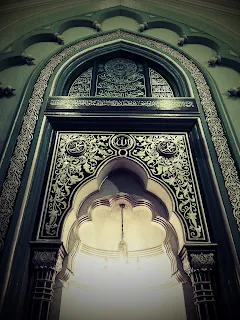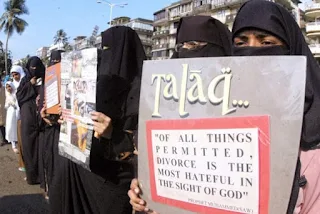We took a pledge from you, ‘Do not shed one another’s blood or drive one another from your homelands’. You acknowledged it at the time, and you can testify to this. Yet here you are, killing one another and driving some of your own people from their homes, helping one another in sin and aggression against them..’ (2: 92)
‘Lord, we fear he will do us great harm or exceed all bounds’ (20:45)
‘We have put our trust in God. Lord! Do not make us an object of persecution for the oppressors’ (10: 85)
‘Lord, we have put our trust in You; we turn to You; You are our final destination. Lord, do not expose us to mistreatment at the hands of the disbelievers. Forgive us, Lord, for You are the Almighty, the All Wise’. (60:6)
‘Truly those who persecute believing men and believing women, then do not repent, theirs shall be punishment of Hell, and theirs shall be the punishment of burning’. (85:11)
An Unjust World
Today, millions of people suffer injustice, persecution and slaughter at the hands of unjust regimes around the world. In several nations- whether they are Muslim-majority or non-Muslim majority, minority communities are facing legal discrimination and political oppression. Consider the recent events impacting certain peoples, the harrowing accounts of systematic oppression are mind-numbing, and make for depressing reading: genocide of the Bosnian Muslims in Europe in the 1990’s; the ‘ethnic cleansing’ of Muslims in Central African Republic; the high-handedness of the Myanmar/Burma regime vis-a-vis
the Rohingya Muslims; the inhuman treatment being meted out to the Uighur Muslims in China; the throttling of civic, political and economic freedoms of Muslim- majority provinces in Russia (the situation of Chechnya/ Dagestan, Crimean Tartars, etc); the volatile situation in Kashmir; the fifth-generation/ long-suffering Palestinian refugees; the situation of millions of refugees from, and internally displaced persons in, Syria, Iraq, Lebanon, Turkey, Libya, Yemen, etc.
The mindset of the self-exalting Pharaohs, hell-bent on persecuting the hapless children of Israel in ancient times, seems to be alive, as if it were, and bedevil, almost every nation and generation of people. The denial of human rights and community interests and political oppression is often serviced in the name of superior race; majority religion; superior caste; pure ethnicity; national culture; secular law, popular will, etc. Not just under despotic regimes, but also under so-called democracies, minority communities and their interests are trampled upon. The national ‘self’ is imagined in such a narrow way that the minorities are treated as the ‘other’ and the law is unleashed to deny and deprive the basic rights of such persons: citizenship, civic and political rights, economic, social and cultural rights, etc. Hence, in the name of socially-codified communal prejudices in such democracies, the human dignity, basic identity, fundamental rights and other collective interests of the minority is unrecognized, and often, criminalized.
The Darkness in Delhi
 As I write this, my city, Delhi, is limping back to ‘normalcy’ after the dastardly, orchestrated, anti-Muslim violence of last week that claimed over 50 innocent lives, and critically- injured hundreds of others, ordinary people going about their everyday lives
As I write this, my city, Delhi, is limping back to ‘normalcy’ after the dastardly, orchestrated, anti-Muslim violence of last week that claimed over 50 innocent lives, and critically- injured hundreds of others, ordinary people going about their everyday lives. Shops and establishments, vehicles and other properties, houses and the mosques of the Muslim community were particularly targetted by the criminal thugs on steroid. The communal fire and riots were ignited and perpetrated with a clear and malicious intent to destroy the peaceful and dignified co-existence of the Hindus and the Muslims of the city for several decades. By attacking the very livelihood of the minority community, the marauders and their political dons hope to break the harmony in society. With every communal violence, the 'distance' between communities increase, leading to 'apartheid-cities' segregating the people from one another, further and further. [Inset:
'A mosque in Delhi's Ashok Nagar was torched and a saffron flag associated with the Hindu far right was placed on the minaret' [File: Sajjad Hussain/AFP/Al Jazeera]

























